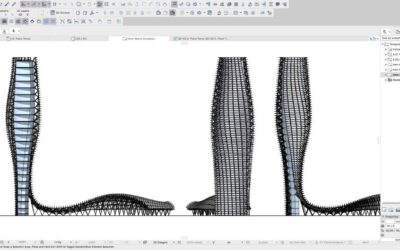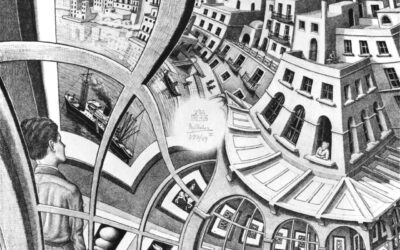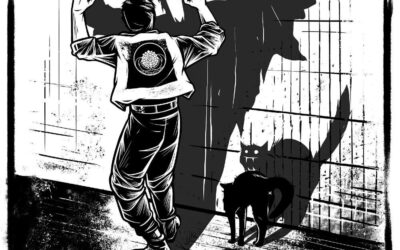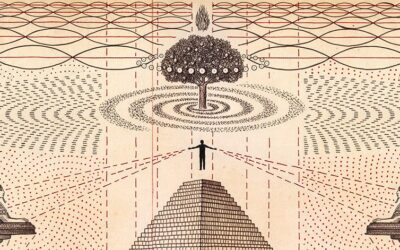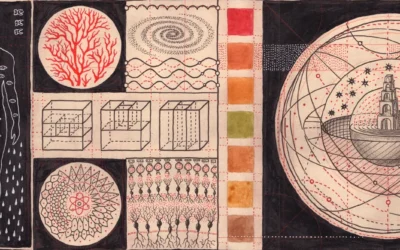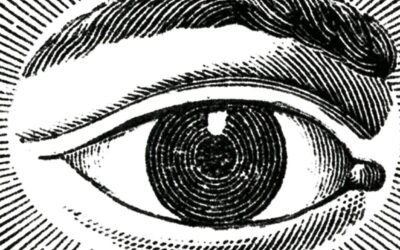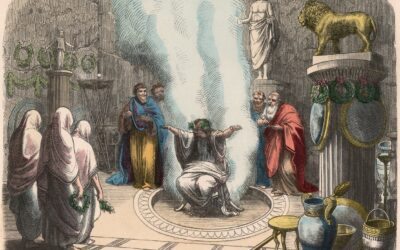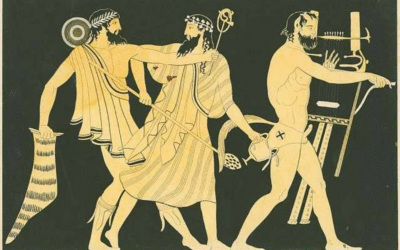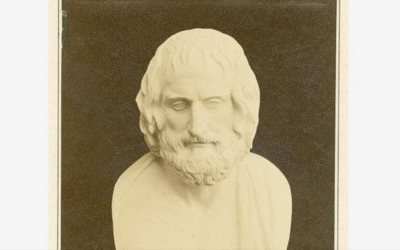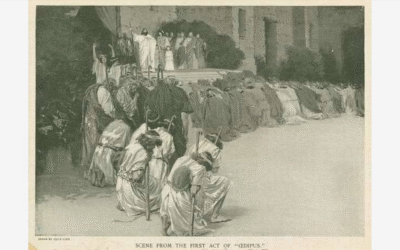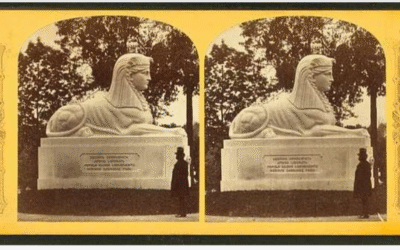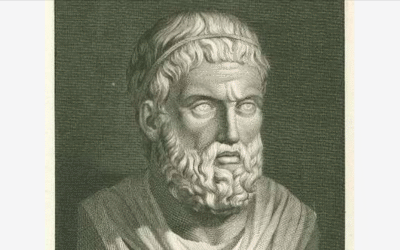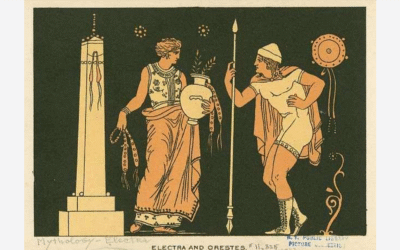What is Oil Crisis Architecture? The Resurgence of Modernist Principles in Contemporary Architecture: Neo-Modernism Neo-Modernism emerged in the late 20th and early 21st centuries as a reinterpretation of modernist principles in architecture. This movement developed...
therapist near me
Expert-Led Insights on Trauma, Depth Psychology, and Healing
Welcome to the Taproot Therapy Collective Blog, your deep-dive space into trauma-informed therapy, depth psychology, and the cultural forces shaping mental health today. Our goal is to be a trusted, authoritative resource for individuals and professionals seeking to understand the complex links between the psyche, the body, and society.
Authored by Licensed Clinical Experts
As a YMYL (Your Money, Your Life) resource, we prioritize E-E-A-T (Experience, Expertise, Authoritativeness, and Trustworthiness). Every article is authored and clinically reviewed by our team of licensed therapists in Birmingham, Alabama. Our writers share their firsthand clinical experience and deep expertise in fields ranging from Jungian insights and somatic healing to cutting-edge, evidence-based modalities.
Explore Our Core Topics
Our blog explores the forefront of mental health, including:
- Evidence-Based Modalities: In-depth guides on EMDR (Eye Movement Desensitization and Reprocessing)—a practice standardized by organizations like EMDRIA—and advanced neuromodulation techniques.
- Depth & Somatic Psychology: Investigations into dream analysis through a Jungian lens, shadow work, and how somatic trauma mapping helps track pain that lives inside the body.
- Integrative & Cultural Topics: Discussions on the role of micro-nutrition, media psychology, and critical issues like the weaponization of collective trauma in our digital era.
A Resource for Our Alabama Community and Beyond
While our insights are relevant globally, we are rooted in the Birmingham community. We regularly share resources for therapists and mental health seekers in Alabama. Our writing bridges clinical depth with cultural relevance, designed to help you find articles that resonate and cultivate new possibilities for growth, resilience, and meaningful connection.
Search the Blog by Category
Deindustrialization and the Postmodern Corporate Headquarters: Reimagining the Workplace
The Psychology of the Post Modern Corporate Office Deindustrialization and the Postmodern Corporate Headquarters emerged in the 1980s as a response to the shifting economic landscape and the rise of postmodernism in architecture. This trend represented a significant...
The Countercultural Turn and Postmodern Historicism: Challenging Modernist Orthodoxy
The Psychology of Post Modern Historicism What is Postmodern Classicism Postmodern Classicism emerged in the 1980s as a critique of modernist architecture's rejection of historical styles. The movement sought to reintegrate classical elements into contemporary design,...
Computational Design and Digital Fabrication: Reshaping Architectural Possibilities
The Psychology of Computational Design Computational Design and Digital Fabrication represent a revolutionary approach in architecture that leverages advanced computer algorithms and cutting-edge manufacturing technologies to create complex, highly optimized...
Adaptive Reuse: Breathing New Life into Existing Structures
The Psychology of Adaptive Reuse Adaptive Reuse is an architectural approach that focuses on repurposing existing buildings for new functions while preserving their historical, social, or architectural value. This strategy has gained increasing prominence in the 21st...
Adaptive Architecture: Architecture of the Environment
The Psychology of Adaptive Architecture Adaptive Architecture: Architecture of the Environment Adaptive Architecture represents an innovative approach where buildings are designed to adjust and respond to their environment, occupants, and usage patterns. This emerging...
Biophilic Design: Reconnecting Humans with Nature through Architecture
The Psychology of Biophilic Design Biophilic Design: Reconnecting Humans with Nature through Architecture Biophilic Design is an innovative approach to architecture that seeks to satisfy the innate human need to affiliate with nature in the built environment. This...
Post-Digital Architecture: Blending the Virtual and Physical Realms
Post-Digital Architecture: Blending the Virtual and Physical Realms Post-Digital Architecture: Bridging the Digital and Physical Realms Post-Digital Architecture emerged in the early 21st century as a response to the pervasive influence of digital technologies on...
New Materialism in Architecture: Embracing Material Agency and Ecological Thinking
The Psychology of New Materialism New Materialism in architecture represents a shift in design thinking that emerged in the early 21st century. This approach challenges traditional notions of matter as passive and inert, instead recognizing materials as active agents...
Parametricism: The New Digital Paradigm in Architecture
The Psychology of Parametricism What is Parametricism? Parametricism, a design paradigm that emerged in the late 20th and early 21st centuries, represents a significant shift in architectural thinking and practice. This approach, which relies heavily on algorithmic...
Neo-Modernism: Reviving and Refining Modernist Principles
The Psychology of Neo-Modernism What is Neo-Modernism? Neo-Modernism emerged in the late 20th and early 21st centuries as a thoughtful return to and reinterpretation of modernist principles in architecture. This movement seeks to address the criticisms of modernism...
Art Deco Architecture: Embracing Modernity with Style
The Psychology of Art Deco What is Art Deco? Art Deco, a prominent design movement that flourished in the 1920s and 1930s, represented a bold embrace of modernity, technology, and machine aesthetics. This style, characterized by its sleek lines, geometric patterns,...
City Beautiful Movement: Urban Grandeur and Social Reform
The Psychology of the City Beautiful Movement What was the City Beautiful Movement? The City Beautiful Movement, flourishing from the 1890s to the 1920s, was a transformative urban planning philosophy that swept across North America. This movement sought to introduce...
Beaux-Arts Architecture: Grandeur and Classical Revival
The Psychology of Beaux Arts Beaux-Arts architecture, which flourished from the 1830s to the early 1900s, represents the pinnacle of academic classicism. Originating from the École des Beaux-Arts in Paris, this style is characterized by its grandeur, symmetry, and...
Arts and Crafts Movement: Celebrating Craftsmanship and Simplicity
The Psychology of the Arts and Crafts Movement The Psychology of the Arts and Crafts Movement: Celebrating Craftsmanship and Simplicity The Arts and Crafts Movement, which emerged in Britain in the late 19th century and quickly spread to other parts of the world,...
Victorian Eclecticism: A Fusion of Styles
The Psychlogy of Victorian Eclecticism The Psychology of Victorian Eclecticism: A Fusion of Styles Victorian Eclecticism, prevalent during the reign of Queen Victoria (1837-1901), represents a period of architectural exuberance and diversity. This movement,...
Romantic Architecture: Embracing Emotion and Nature
The Psychology of Romantic Architecture What is Romantic Architecture? Romantic architecture, emerging in the late 18th century and flourishing through the 19th century, represents a departure from the strict rationalism of Neoclassicism. This movement, characterized...
Gothic Revival Architecture: Reimagining Medieval Splendor
The Psychology of Gothic Revival What is Gothic Revival? Gothic Revival architecture, flourishing from the late 18th to the early 20th centuries, represents a romantic reimagining of medieval Gothic style. This movement, characterized by pointed arches, steep gables,...
Greek Revival Architecture: The American Greek Resurgence
The Psychology of Greek Revival What is Greek Revival? Greek Revival architecture, flourishing in the United States from about 1825 to 1860, represents a significant chapter in American architectural history. This style, characterized by its imposing columns and...
Colonial Architecture: Bridging Past and Present in American Design
The Psychology of Colonial Architecture Colonial architecture stands as a testament to America's rich historical tapestry, embodying the spirit of early settlers and their quest for identity in a new world. This architectural style, prevalent from the 1600s to the...
The Jungian Shadow: Exploring the Hidden Depths of the Psyche
What is the Jungian Shadow in Psychology? There's a picture opposite me Of my primitive ancestry Which stood on rocky shores And kept the beaches shipwreck-free Though I respect that a lot I'd be fired if that were my job After killing Jason off And countless...
The Extensive Evidence-Based Benefits of Aromatherapy
Is Aromatherapy Evidence Based? Aromatherapy, the therapeutic application of natural plant extracts and essential oils, is a practice deeply rooted in global healing traditions. From the sacred incense of ancient temples to the medicinal blends of traditional...
The Psychology Of Architecture: The Forces that Move Our Buildings
Why Does Architecture Change? Architecture is not just a utilitarian practice of building shelter, but a profound expression of human psychology, culture, and politics. Throughout American history, architectural styles have served as a barometer of the nation's...
The Psychology of Design: How Our Spaces Reveal Our Minds
The Psychology of Design in America Design is more than just the way things look. Design is an alchemization of a culture's values, aspirations, anxieties and worldview at a particular moment in time. Like an anthropologist studying ancient ruins to understand...
Experience the Healing Power of Brainspotting at Taproot Therapy in Vestavia Hills, Alabama
Taproot: Birmingham's Brainspotting Pioneers Are you struggling with complex PTSD, dissociative disorders, or treatment-resistant trauma? Brainspotting therapy at Taproot in Vestavia Hills, Alabama offers a powerful, brain-based path to healing. Our therapists are the...
The Confusion Between Jung and the New Age
Issues in Defining the Self in Psychotherapy Carl Jung was a seminal thinker whose ideas have penetrated popular...
Breaking the Stigma: Encouraging Physicians to Seek Mental Health Support
Encouraging Physicians to Seek Mental Health Support The stigma surrounding mental health in the medical community is a significant barrier preventing physicians from seeking the support they need. Despite the high prevalence of mental health challenges among...
Preventing Burnout: Strategies for Building a Resilient Healthcare Workforce
How to fix Physician Burnout We Have a Clinician who Treats Physician Burnout at Taproot Therapy Collective Check Him out Here Physician burnout is a pervasive and pressing issue that threatens the well-being of healthcare professionals and the quality of patient care...
The Impact of Compassion Fatigue and Secondary Trauma
Key Takeaways: Compassion Fatigue & Physician Burnout Differential Diagnosis: Distinguishes between Burnout (bureaucratic exhaustion), Compassion Fatigue (emotional depletion from empathy), and Moral Injury (violation of ethical values). Neurobiology: Explains how...
From Healer to Healed: A Therapist’s Guide to Overcoming Physician Burnout
Key Takeaways: Treating Physician Burnout The "Hidden" Diagnosis: Distinguishes between clinical burnout, depression, and Moral Injury—the distress caused by working within a broken system. The "Super-Helper" Complex: Explores the personality traits (perfectionism,...
The Silent Epidemic: Confronting Physician Burnout in Modern Healthcare
Key Takeaways: Physician Burnout & Moral Injury Prevalence: Over 50% of physicians report symptoms of burnout, making it a public health crisis affecting patient safety. Key Distinction: "Burnout" implies a lack of resilience; Moral Injury describes the distress...
Athens as Anima, Sparta as Animus: Psychological Lessons from Ancient History
Key Takeaways: The Psychology of the Peloponnesian War Archetypal Conflict: Athens represents the Anima (creative, chaotic, fluid), while Sparta represents the Shadow/Ego (rigid, militaristic, disciplined). Hubris & Inflation: The Athenian defeat is a classic case...
The Archetypal Wisdom of Greek Tragedy
Key Takeaways: Greek Tragedy & Jungian Psychology Archetypal Mirror: Greek tragedies are not just ancient stories; they are maps of the Collective Unconscious, dramatizing universal psychological conflicts. The Shadow: Plays like Medea and Ajax illustrate the...
The Shadow and the Self: Euripides’ Helen
Executive Summary: The Psychology of Euripides' Helen The Core Premise: Euripides presents a radical "anti-tragedy" where Helen of Troy never went to Troy. Instead, the gods created a "Phantom" (Eidolon) out of clouds to take her place, while the real Helen waited in...
The Maiden and the Stranger: Euripides’ Iphigenia in Tauris
Key Takeaways: Iphigenia in Tauris & Jungian Psychology The Archetype of Exile: Represents the psychological state of "Liminality"—being stuck between the conscious identity (Greece) and the unconscious shadow (Tauris). Trauma & Ritual: Iphigenia's role as a...
Love, Death, and the Anima: A Depth Psychological Analysis of Euripides’ Alcestis
Key Takeaways: Alcestis & Jungian Psychology The Problem Play: Alcestis sits between tragedy and comedy, mirroring the psychological state of "Liminality"—the threshold between the conscious ego and the unconscious shadow. Vicarious Sacrifice: Admetus’s refusal to...
The Rebel and the Tyrant: A Depth Psychological Analysis of Aeschylus’ Prometheus Bound
Key Takeaways: Prometheus Bound & Jungian Psychology The Archetype of Rebellion: Prometheus represents the emerging Ego that steals "Fire" (Consciousness) from the Unconscious (The Gods) to give it to humanity. The Negative Senex (Zeus): Zeus embodies the...
The Feminine and the Foreign: A Depth Psychological Analysis of Aeschylus’ The Suppliants
Key Takeaways: The Suppliants & Jungian Psychology The Refugee Soul: The Danaids represent the Anima (Feeling Function) fleeing from the predatory Animus (The Egyptians), seeking sanctuary in the conscious mind (Argos). The Democratic Ego (Pelasgus): King Pelasgus...
The Curse of the Father: A Depth Psychological Analysis of Aeschylus’ Seven Against Thebes
Key Takeaways: Seven Against Thebes & Depth Psychology The Hostile Brothers Archetype: Eteocles and Polynices represent the split within the psyche (Ego vs. Shadow). When the self is divided against itself, the result is total annihilation (Mutually Assured...
The Heroine’s Sacrifice: A Depth Psychological Analysis of Sophocles’ Antigone
Key Takeaways: Antigone & Depth Psychology The Conflict: Represents the eternal battle between the State/Ego (Creon) and the Soul/Self (Antigone). It is the clash between "written laws" (logic) and "unwritten laws" (archetypal morality). Simone Weil's Insight:...
The Hero’s Final Journey: A Depth Psychological Analysis of Sophocles’ Oedipus at Colonus
Executive Summary: Oedipus at Colonus & The Psychology of Redemption The Core Premise: This play is the final chapter of the Oedipus cycle, written by Sophocles at the age of 90. It details the transformation of Oedipus from an exiled "monster" into a "DAIMON"—a...
The Riddle of the Self: A Depth Psychological Analysis of Sophocles’ Oedipus Rex
Executive Summary: The Psychology of Oedipus Rex The Core Conflict: Sophocles' masterpiece is not just about incest; it is the ultimate drama of the Ego's collision with the Self. Oedipus represents the brilliant, inflated intellect that believes it can outsmart Fate...
Iphigenia in Aulis: A Depth Psychological Perspective
What Happens in the Iphigenia? Euripides's Iphigenia in Aulis is a profound exploration of the human psyche, delving into themes of sacrifice, patriarchy, the nature of free will, and the complex dynamics of family and society. By examining this ancient tragedy...
Anima and Animus in the The Bacchae: A Depth Psychological Perspective
Executive Summary: The Psychology of The Bacchae The Core Conflict: Euripides' masterpiece is the ultimate study of Repression. It pits Pentheus (The Rigid Ego) against Dionysus (The Irrational Id). It demonstrates that whatever we repress eventually returns to...
Hippolytus: A Depth Psychological Perspective
What Happens in Hippolytus? Euripides's Hippolytus is a complex and psychologically rich exploration of desire, repression, and the conflict between societal expectations and individual passions. By examining this ancient tragedy through the lens of Jungian archetypes...
Medea: A Depth Psychological Perspective
Executive Summary: The Psychology of Medea The Core Conflict: Euripides' tragedy is not just about a scorned woman; it is the archetypal blueprint of Narcissistic Rage. It explores what happens when the "Golden Shadow" (Medea) is betrayed by the "False Self" (Jason)....
Aeschylus The Persians: A Depth Psychological Perspective
What Happens in The Persians? The Persians, a tragedy by Aeschylus, is a unique and profound exploration of war, hubris, and the nature of power. As the only extant Greek tragedy that deals with contemporary events (the Persian Wars), it offers a fascinating window...
Prometheus Bound: A Depth Psychological Perspective
Key Takeaways: Prometheus Bound & Jungian Psychology The Archetype of Rebellion: Prometheus represents the emerging Ego that steals "Fire" (Consciousness) from the Unconscious (The Gods) to give it to humanity. The Negative Senex (Zeus): Zeus embodies the tyrannical,...
The Philoctetes of Sophocles: A Depth Psychological Perspective
Executive Summary: The Psychology of Philoctetes The Core Conflict: Sophocles' late masterpiece explores the relationship between Trauma (The Wound) and Power (The Bow). It asks: Can a society use a person's gifts while rejecting their pain? Jungian Key Concepts: The...
The Electra of Sophocles: A Depth Psychological Perspective
Executive Summary: The Psychology of Electra The Core Conflict: Sophocles' play is the definitive study of Arrested Development. Electra is trapped in eternal mourning, representing a psyche unable to metabolize trauma. Jungian Key Concepts: The Electra Complex:...
Explore the Articles by Categories on Our Blog
Blog Categories
Psychology Topics and Articles
A comprehensive exploration of psychology topics spanning the breadth of human experience, from fundamental concepts like memory and emotion to specialized areas like forensic psychology and environmental mental health.
Psychology Articles
Explore the fascinating world of psychology, from depth psychology and symbolism to cognitive, social, and developmental theories. Uncover the mysteries of the human mind and behavior.
Depth Psychology & Jungian Approaches
Jungian Therapy and Depth Psychology
Explore Jungian concepts such as archetypes, the collective unconscious, and individuation. Learn how dream analysis and symbolism facilitate self-awareness and personal growth through the insights of Carl Jung.
Dreams and the Unconscious
Explore the significance of dreams in depth psychology, from Freud’s dream interpretation to Jungian archetypes. Learn how dreams provide insights into the unconscious mind, personal growth, and trauma healing.
Symbolism and Meaning in Psychotherapy
Uncover the profound language of symbolism and meaning-making in the human psyche. Explore universal archetypes, myths, and metaphors through depth psychology and the symbolic dimensions of trauma.
Mythology and Therapy
Journey into the captivating world of classical mythology, focusing on the rich traditions of ancient Greece and Rome. Explore how myths offer profound insights into the human condition and universal themes.
Evidence-Based Practice & Research
Evidence Based Practice and Research Psychology
Explores the frontier of evidence-based practice in psychotherapy, taking a fresh look at the scientific foundations of mental health treatment through the integrative lenses of depth psychology and trauma neurology.
Evidence Based Practice in Therapy
Examines the complex landscape of research-informed therapy while critically evaluating the limitations, biases, and cultural considerations that shape how we apply research findings to real-world clinical practice.
Philosophy & Existential Approaches
Philosophy for Therapists
Explore existentialism, metaphysics, ethics, and the philosophy of mind. Discover insights from renowned thinkers and engage in thought-provoking discussions.
Phenomenology and Existential Psychology
Explore phenomenological and existential approaches to understanding human experience and psychological healing, focusing on lived experience, authenticity, freedom, and meaning-making.
Metamodernism and Deconstruction
Examine how post-postmodern frameworks illuminate contemporary mental health challenges including cultural displacement, narrative fragmentation, authenticity struggles, and the oscillation between hope and despair.
Psychology of Modernism Post Modernism and the Meta Modern
Explore the psychological dimensions of cultural paradigms and their impact on identity, meaning-making, and therapeutic practice.
Neuroscience & Brain-Based Approaches
Neuroscience and the Brain for Therapists
Delve into the intricate relationship between brain function, trauma, and mental health treatment. Discover insights into innovative therapeutic approaches, neuroplasticity, and the role of emotions in healing.
Media & Culture Psychology
Psychology of Film and TV
Explore the hidden dimensions of film and TV through the lenses of depth psychology and trauma neurology. Discover how the moving image reflects and shapes the psyche, both individually and collectively.
Psychology of Media and Culture
Explore the profound psychological and symbolic impact of media and culture on our individual and collective psyche. Uncover the hidden meanings and archetypal themes woven into the fabric of our cultural landscape.
Specialized Psychology Fields
Industrial Organisational Psychology
Explore Industrial-Organizational Psychology, focusing on workplace performance, employee well-being, leadership development, and organizational culture.
Psychology of Buildings and Architecture
Explore the psychology of design and architecture, from the emotional impact of spaces to human-centered design. Learn how architecture influences mental health, well-being, and behavior.
Color Psychology
Explore how colors influence psychological experience, from the neurological mechanisms behind color perception to practical applications in therapeutic environments and creative healing approaches.
Psychology of History
Explore the symbolic significance and psychological undercurrents of historical events through the lens of depth psychology, symbolism, and design psychology.
Psychology of Conspiracy Theories
Examine the psychological dynamics behind conspiracy thinking, critical thinking, and the appeal of alternative narratives in contemporary culture.
Anthropology & Cross-Cultural Psychology
Anthropology and Evolutionary Psychology for Therapy
Embark on a fascinating journey into the deep history of the human psyche, exploring how anthropology and evolutionary psychology shed light on ancient origins of modern minds, behaviors, and cultures.
Spiritual & Religious Approaches
Christian Mysticism in Therapy
Discover the transformative power of Christian mysticism and contemplative spirituality, exploring how practices like centering prayer and lectio divina can heal trauma and facilitate encounters with the deep Self.
Spirituality and The Transcendent Function in Psychotherapy
Explore the intersection of spirituality and depth psychology to uncover the role of spiritual practices in trauma healing, consciousness, and personal transformation.
Comparative Religion for Therapy
Discover the universal quest for meaning, transcendence, and healing across spiritual traditions, exploring key practices and insights from world religions through depth psychology and trauma neurology.
Psychology of Mystics, Gurus, and Spiritual Philosophers
Examine the psychological dimensions of mystical experience and spiritual teaching across various traditions and historical periods.
Specialized Treatment & High-Control Groups
Cults and High Control Group Psychology
Explore the shadowy psychodynamics of coercive control, from cults to abusive relationships. Learn to recognize red flags of undue influence and support recovery processes.
History & Biographical Studies
History of Psychotherapy
Trace the evolution of psychotherapy through the lens of depth psychology and symbolism, from Freudian psychoanalysis to contemporary approaches.
Psychotherapy Biographies: Historical Figures in the History of Psychology
Explore the lives and contributions of influential figures who shaped the field of psychology and psychotherapy.
Models of Psychotherapy
Explore depth psychology, CBT, humanistic therapies, and more. Discover how various therapeutic approaches promote healing and personal growth.
Holistic & Alternative Approaches
Alternative Medicine and Holistic Health
Discover a deeper approach to health and healing by exploring alternative medicine practices and holistic wellbeing through the lenses of depth psychology and trauma neurology.
Guided Meditations for Therapy
Comprehensive collection of guided meditations designed to support mental health, emotional regulation, and spiritual well-being.
Hardy Micronutrition is clinically proven to IMPROVE FOCUS and reduce the effects of autism, anxiety, ADHD, and depression in adults and children without drugs — Watch Interview With Hardy • Visit GetHardy.com and use offer code TAPROOT for 15% off




